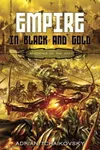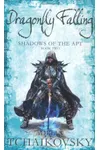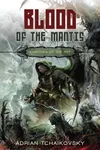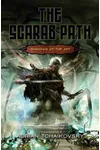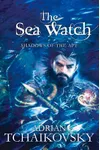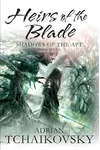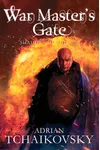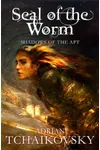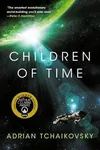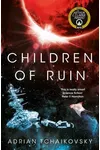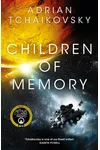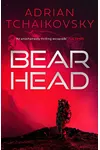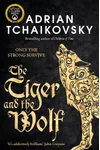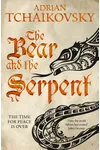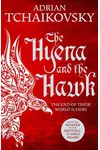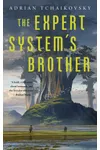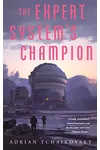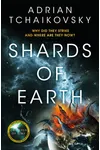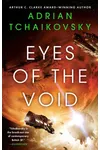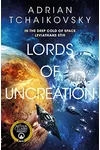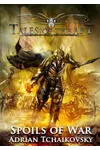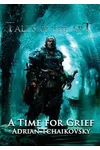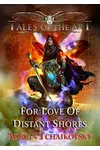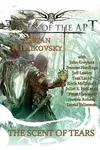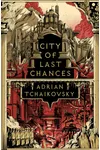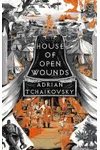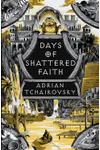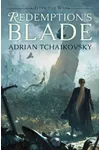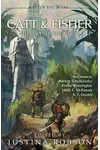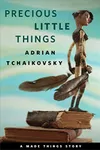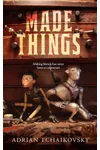Picture a British storyteller who turned spiders into space-faring philosophers—meet Adrian Tchaikovsky! Born Adrian Czajkowski, this science fiction and fantasy maestro weaves worlds where insects and humans collide in thrilling, thought-provoking tales. From his epic Shadows of the Apt series to the Hugo Award-winning Children of Time, Tchaikovsky’s imagination knows no bounds, earning him a devoted following and critical acclaim.
With a knack for blending zoology, psychology, and speculative fiction, Tchaikovsky crafts stories that explore evolution, artificial intelligence, and the essence of humanity. His journey from a legal executive to a full-time author is a testament to perseverance, making him a standout voice in modern sci-fi and fantasy.
The Making of Adrian Tchaikovsky
Born in June 1972 in Woodhall Spa, Lincolnshire, Adrian Tchaikovsky grew up fascinated by the natural world. His studies in zoology and psychology at the University of Reading fueled his love for insects, which later became a hallmark of his writing. Before becoming a full-time writer in 2018, he worked as a legal executive in Leeds, balancing courtrooms with his passion for storytelling. After 15 years of rejections, his debut novel, Empire in Black and Gold, launched in 2008, kicking off his prolific career.
Tchaikovsky’s early influences included naturalists like Gerald Durrell and literary giants like Gene Wolfe and China Miéville. His role-playing game, Bugworld, created during university, laid the groundwork for the insect-themed Shadows of the Apt, showcasing his knack for blending science and fantasy.
Adrian Tchaikovsky’s Unforgettable Stories
Tchaikovsky’s bibliography is a treasure trove of over 40 novels and novellas, spanning epic fantasy, space opera, and hard science fiction. His debut series, Shadows of the Apt (2008–2014), spans 10 books and follows insect-inspired tribes battling the Wasp Empire in a steampunk-flavored world. Its intricate world-building and balanced magic-tech divide set Tchaikovsky apart as a genre innovator.
The Children of Time trilogy (2015–2022) is his crowning achievement, earning the 2016 Arthur C. Clarke Award for the first book. It traces the evolution of sentient spiders on a terraformed planet, weaving themes of survival and cooperation with breathtaking scope. Children of Ruin and Children of Memory expand the saga with octopuses and cosmic mysteries, showcasing Tchaikovsky’s biology-rooted sci-fi. His Final Architecture trilogy (2021–2023) is a gripping space opera about humanity’s fight against planet-destroying aliens, while standalone novels like Cage of Souls (2019) explore dystopian futures with haunting depth.
Known for his accessible yet profound style, Tchaikovsky infuses dark wit and horror elements into his narratives. His love for arthropods—spiders, bees, and ants—creates unique, sometimes unsettling characters that challenge readers to rethink humanity’s place in the universe.
Why Adrian Tchaikovsky Matters
Tchaikovsky’s impact on science fiction and fantasy is profound, blending rigorous science with philosophical depth. His ability to humanize non-human characters, like the spiders of Children of Time, has inspired readers and writers to explore empathy across species. Awards like the Arthur C. Clarke, BSFA, and British Fantasy Awards underscore his influence, while his prolific output—often multiple books a year—keeps fans eagerly awaiting his next release.
Beyond his stories, Tchaikovsky’s perseverance resonates with aspiring authors. His 15-year struggle to get published is a reminder that talent and tenacity can break through. Living in Leeds with his family, he continues to push speculative fiction’s boundaries, colonizing mainstream literature with sci-fi and fantasy.
- Born: June 1972, Woodhall Spa, Lincolnshire
- Key Works: Children of Time, Shadows of the Apt, Final Architecture
- Awards: Arthur C. Clarke Award (2016), BSFA Awards, British Fantasy Award
- Hobbies: Role-playing games, stage-fighting, board gaming
Snag Children of Time and dive into Adrian Tchaikovsky’s mind-bending sci-fi! Whether you’re a fantasy fanatic or a sci-fi scholar, his worlds will leave you buzzing with excitement.
